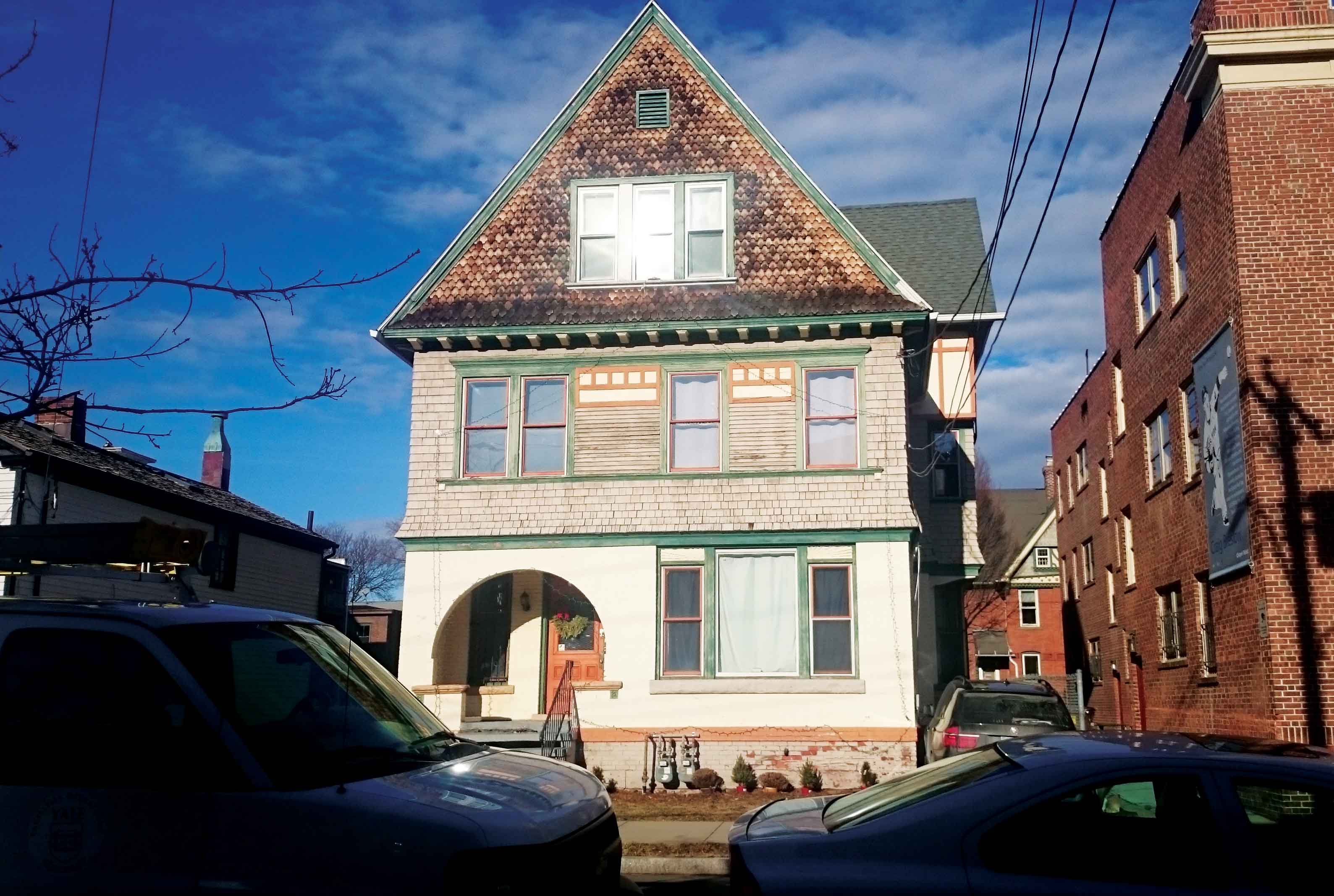
The Yale chapter of Alpha Phi, the newest sorority on campus, will move into its first house on 33 Edgewood Ave. in August.
Although Alpha Phi has now cycled through two years of recruitment, most recently handing out 49 bids during last week’s sorority rush, the acquisition of a house for on-campus members has been a priority for the Yale chapter since its inception. Lauren Drewniany, who was hired to lead the effort to establish an Alpha Phi chapter at Yale during the summer of 2015 and early 2016, told the News in 2015 that the sorority was searching for a house in areas of New Haven already familiar with Greek life.
Although Alpha Phi International purchased the Edgewood Avenue house in the fall semester of 2016, the sorority is renovating the house, complete with two living rooms and a backyard, until August. Twelve members of the sorority will be able to live in the new house.
“We will be extensively remodeling the property this summer, including safety and accessibility upgrades such as fire sprinklers and interior design upgrades, to create a comfortable and beautiful space for our members,” said Linda Kahangi, executive director of Alpha Phi International.
Kahangi added that the space will be used as a “gathering place for both meetings and just hanging out between classes” for the sisters of Alpha Phi. Sororities at Yale do not hold parties at their houses, and it is unlikely that the new Alpha Phi house will become as public a space as many of the fraternity houses that frequently draw in nonmember students.
While some Yale students have cited an urban legend that old municipal blue laws prevent multiple unrelated women from living together in the same house as a measure against the spread of brothels, New Haven’s Title V housing code defines both “fraternities and sororities that are not located on land owned by educational institutions” as uniform “rooming houses.” As such, fraternities and sororities must adhere to identical occupancy guidelines which require that each single-occupant bedroom possess at least 70 square feet of usable floor space and 50 additional square feet for each additional occupant.
Still, students interviewed noted negative, unlegislated social traditions surrounding fraternity and sorority houses, and some hope that the presence of more sorority housing will help offset the de facto disparities between male and female Greek life at Yale.
“The combination of private real estate and access to alcohol is what gives fraternities so much power relative to sororities,” said Anna McNeil ’20, who has also attended Sigma Alpha Epsilon rush events through the group Engender. “There’s a lot of discussion of male ‘spaces’ in the debate surrounding Greek life, so I find the idea of a female ‘space,’ in this case a house, a really exciting idea to counter that aspect of frat culture.”
Kahangi stressed that Alpha Phi has wanted to locate a house that fits in with the other Greek organizations at Yale since joining the community.
Sorority recruitment concluded at Yale last Monday, though students who participated in the process are skeptical that the possession of a livable house influenced student interest in any of the sororities.
“They’re beautiful spaces, and it’s nice to know you have a home you can physically go to where you will know people, but it wasn’t really a factor I considered when I weighed my options for rushing” said Valentina Wakeman ’20, who accepted a bid this year to Kappa Alpha Theta.
Sorority members interviewed agreed with Wakeman, stressing that sorority houses did not play much of a factor in attracting their interest. Adrianne Owings ’20, who accepted a bid to Kappa Kappa Gamma, noted that the Yale sorority houses can only hold around 10 juniors or seniors each, so even if the spaces were more prominent on campus they would not capture much interest from the freshman class.







